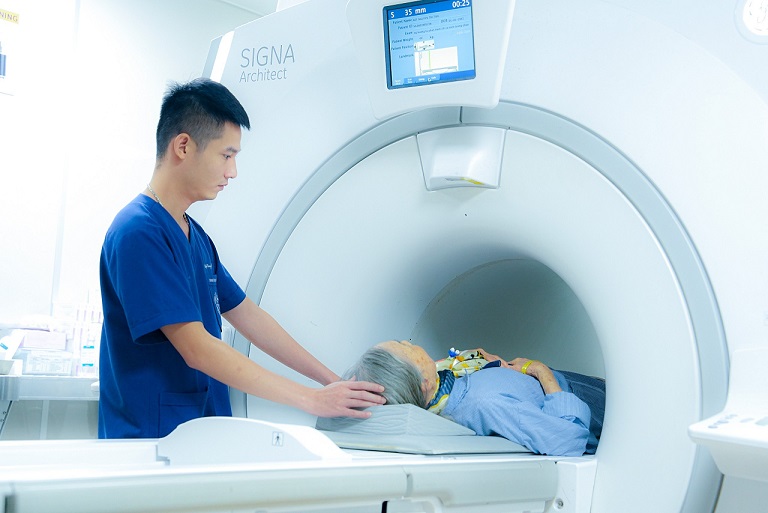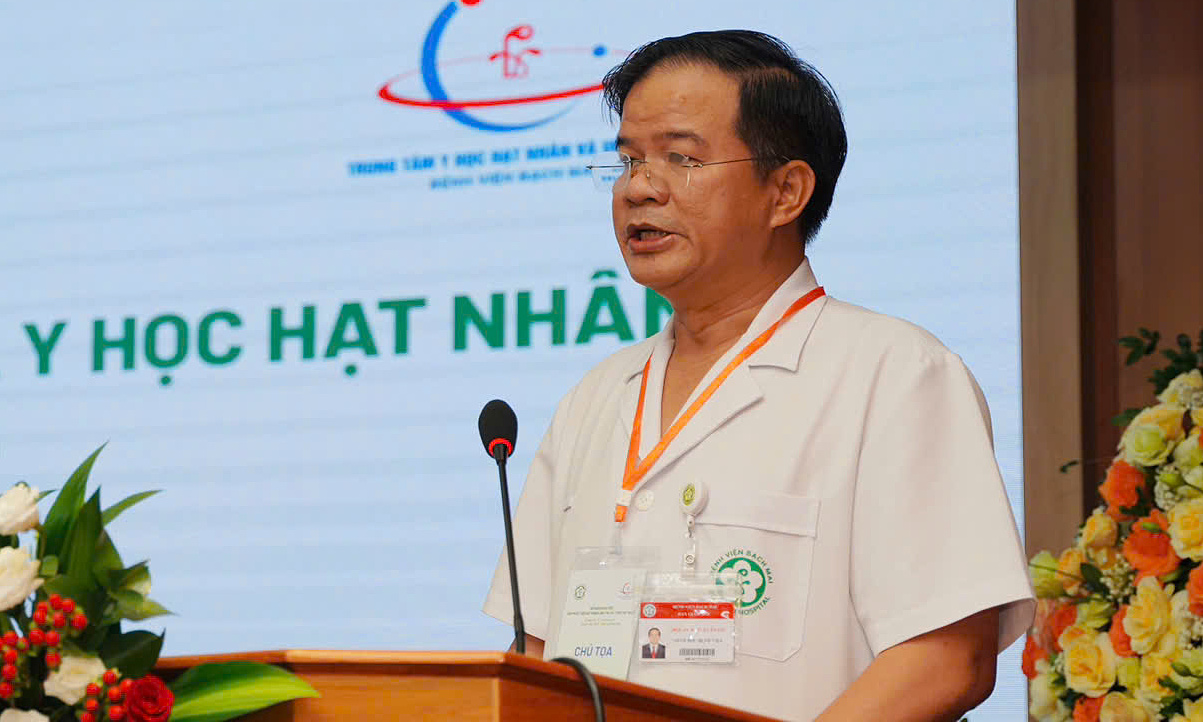Professor Mai Trong Khoa, vice president of the Vietnam Society of Radiology and Nuclear Medicine, addressed these statistics at the Cancer Treatment and Nuclear Medicine Update conference hosted by Bach Mai Hospital on 16/8. The conference provided a platform for experts and doctors to discuss modern techniques for early cancer diagnosis and treatment.
The figures, cited by Khoa from Globocan 2022 (a global cancer registry), place Vietnam 92nd out of 185 countries and territories in new cancer incidence rates, and 50th in cancer mortality rates per 100,000 people. These rankings represent a rise from 99th and 56th respectively in 2018. Lung, liver, breast, stomach, and colorectal cancers are the most prevalent and have the highest mortality rates.
Khoa noted, "Cancer incidence and mortality rates are increasing in Vietnam." He attributed this to increased life expectancy and an aging population, as cancer primarily affects older individuals. He added, "A larger elderly population inevitably leads to higher cancer rates."
Environmental pollution, sedentary lifestyles, and unhealthy habits such as excessive alcohol and tobacco use also contribute to the increased cancer risk, particularly for lung and stomach cancers. Alarmingly, tobacco use is starting at younger ages, even among students. Cigarette smoke, containing hundreds of toxins, harms not only smokers but also those around them, increasing the risk of cancer, especially lung cancer.
Some cases occur without clear risk factors, potentially due to genetic mutations, though these are less common than environmental and lifestyle factors. Increased public awareness of cancer prevention has led to more people seeking health checkups and early cancer screenings, leading to earlier detection.
 |
A patient undergoing a CT scan at Bach Mai Hospital. Photo: The Anh |
A patient undergoing a CT scan at Bach Mai Hospital. Photo: The Anh
Associate Professor Dao Xuan Co, director of Bach Mai Hospital, explained that previously, many cancers went undetected until patients experienced pain or weight loss, often indicating late-stage disease and making treatment challenging with high mortality rates. Today, advancements like PET/CT, SPECT/CT, and SPECT allow early detection of cancerous lesions, even when very small.
New PET/CT scanners can perform whole-body scans in 30 seconds with low radiation doses, safe even for children. This not only reduces waiting times but also improves the detection of metastatic lesions that older machines might miss.
Artificial intelligence (AI) is also being applied in cancer diagnostics. Bach Mai Hospital is implementing a state-level project using AI to analyze CT scans, bronchoscopies, and histopathology for early cancer detection. Initial results show AI can accurately assess cancer risk. This technology is also being tested in thyroid ultrasounds, breast ultrasounds, and mammograms, assisting doctors in early detection of malignant pathologies.
 |
Associate Professor Dao Xuan Co, director of Bach Mai Hospital, speaking at the conference. Photo: Thanh Hai |
Associate Professor Dao Xuan Co, director of Bach Mai Hospital, speaking at the conference. Photo: Thanh Hai
Regarding treatment, Associate Professor Pham Cam Phuong, director of the Center for Nuclear Medicine and Oncology at Bach Mai Hospital, emphasized the importance of advanced diagnostic and treatment techniques in improving outcomes and extending patient survival. Nuclear medicine—combining nuclear physics, molecular biology, and clinical medicine—is considered a cornerstone of precision medicine.
Vietnamese patients now have access to internationally standardized treatments, including surgery, chemotherapy, radiation therapy, targeted therapy, immunotherapy, and nuclear medicine therapies. Targeted radiotherapy, such as I-131, Lu-177, and Y-90, and theranostics offer new hope for cancer patients. These treatments can cure early-stage cancers and improve the length and quality of life for those with late-stage disease.
Le Nga












